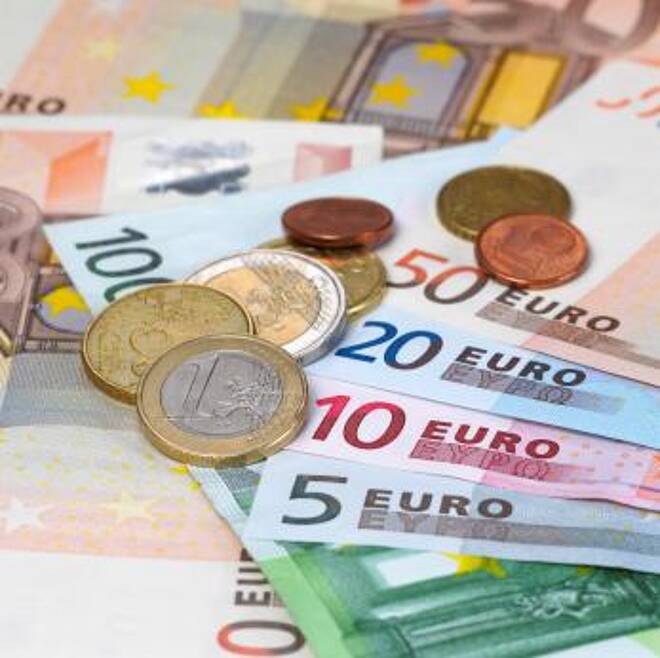Advertisement
Advertisement
Euro Rises and then Falls Back After Positive Economic News
By:
The Euro has fallen against other major currencies after climbing up on the dollar and the pound following encouraging economic news. Last week Eurostat,
The Euro has fallen against other major currencies after climbing up on the dollar and the pound following encouraging economic news.
Last week Eurostat, the official statistical body of the European Union, revealed inflation figures for October to be at 0.0%, up from the deflationary figure of -0.1%v that was recorded in September.
In response the Euro reached 1.107 against the dollar yesterday, before falling to 1.104 just after noon.
There was a similar pattern with the pound, as the Euro spiralled upwards to just under 0.72 yesterday afternoon, and then reached a nadir this morning of below 0.712, and then recovered to 0.713.
Inflation Figures
Food, alcohol and tobacco was expected to have the highest rate of inflation of 1.5%, compared to 1.4% last month.
Non energy industrial good also performed well, reaching 0.4%, but energy prices remained the most deflationary part of the economy, pegged at -8.7%. This was slightly better than lat month, where energy prices were -8.9%.
Inflation is still way below the European Central Banks’ (ECB) target of just under 2%, but they will be pleased to see that a deflationary figure have been averted for the time being.
ECB President Mario Draghi was defiant after the Euro zone consumer price index fell by 0.1% in September, saying that the ECB was ready to do whatever it takes to achieve their medium term inflation target.
He conceded that inflation would be close to zero until the new year, and has not ruled out further stimulus measures to boost inflation.
From the middle of next year through to 2017, Draghi said that he was confident that inflation would rise, due to the depreciation of the Euro exchange rate.
Unemployment Figures Positive
The Euro was also handed a boost following favourable unemployment figures that was also released by Eurostat.
In September the rate of those without work was 10.8%, down by 0.1% from the figures released for August across the European Union.
Unsurprisingly Germany has the lowest unemployment rate in the European Union, with 4.5% currently not in employment.
Euro zone Factory Growth Remains Weak
Despite the positive Eurostat figures, Markit’s final Purchasing Managers Index was 52.3, only very slightly ahead of the survey’s results for September.
Although the figure has been over the 50 mark for over two years, this number separates growth from contraction.
The figures was thought to make disappointing reading for policymakers, as the ECB’s significant stimulus programme has done little to spur productivity in the manufacturing sector.
Its is now over six months since the ECB started to inject 60 billion euros a month into economies as part of its quantitative easing programme.
Greek Banks Rally in Face of ECB findings
Shares in Greek banks rose, in spite of the ECB assessment last week that four banks in Greece have a collective shortfall of EUR14.4 billion. The Piraeus Bank and National Bank of Greece were up more than 5 percent.
The short fall is less that the maximum EUR 25 billion that was allocated for the country’s bank recapitalisation programme, as part of the latest bailout conditions.
About the Author
Peter Tabernerauthor
Advertisement
